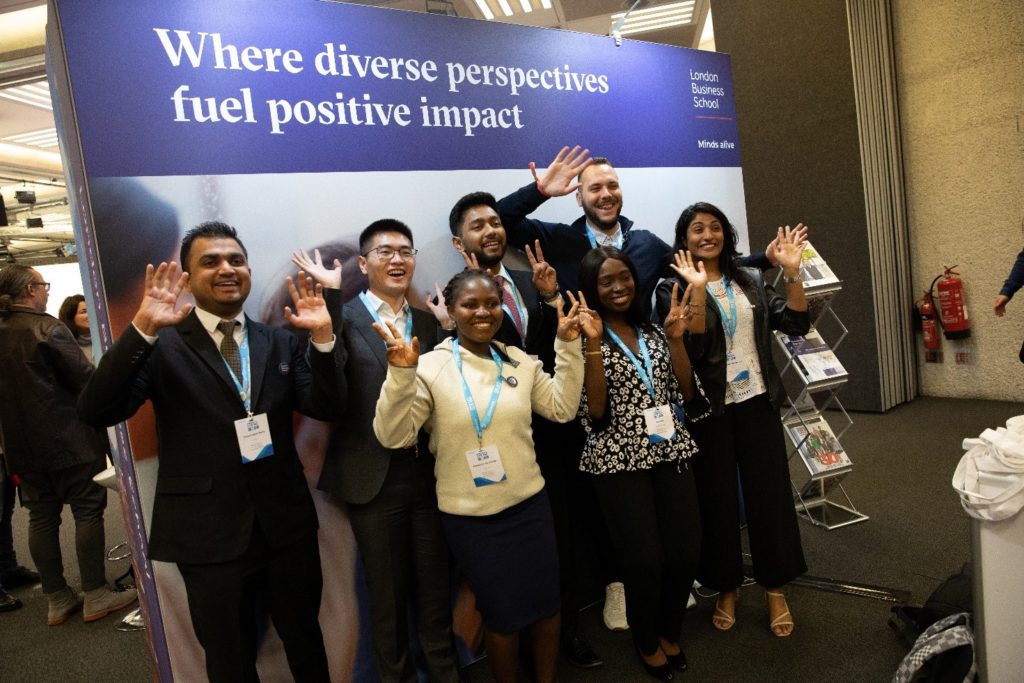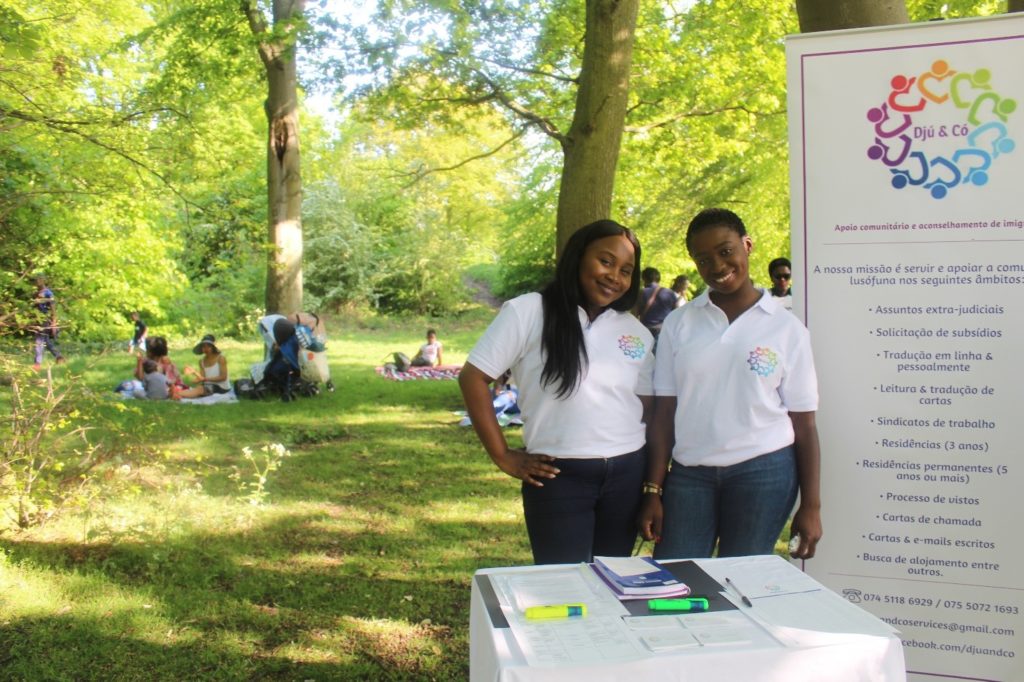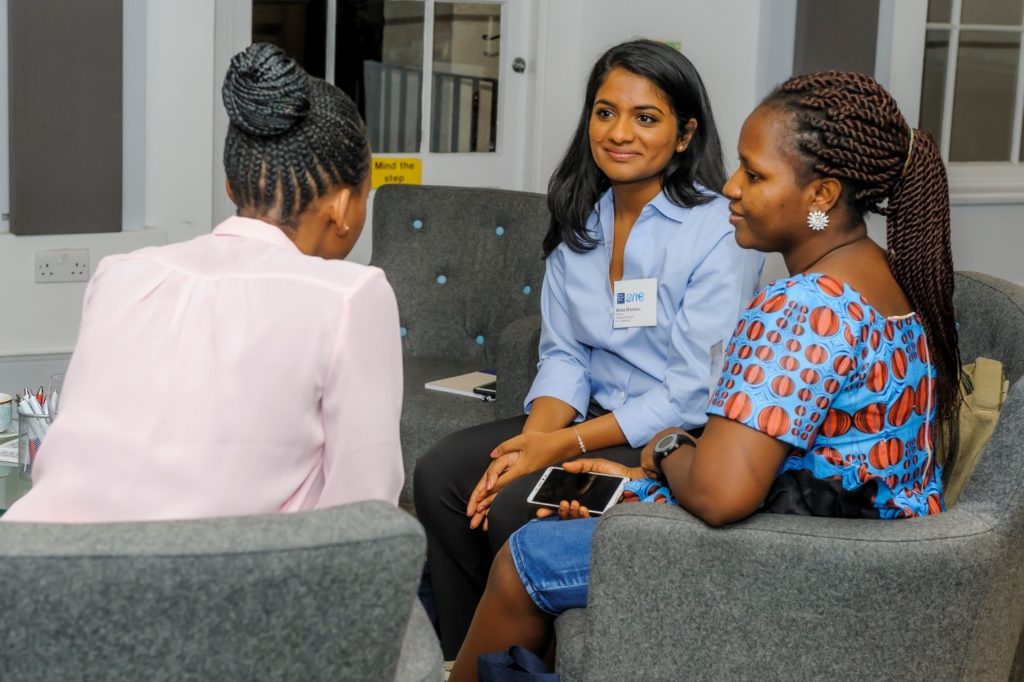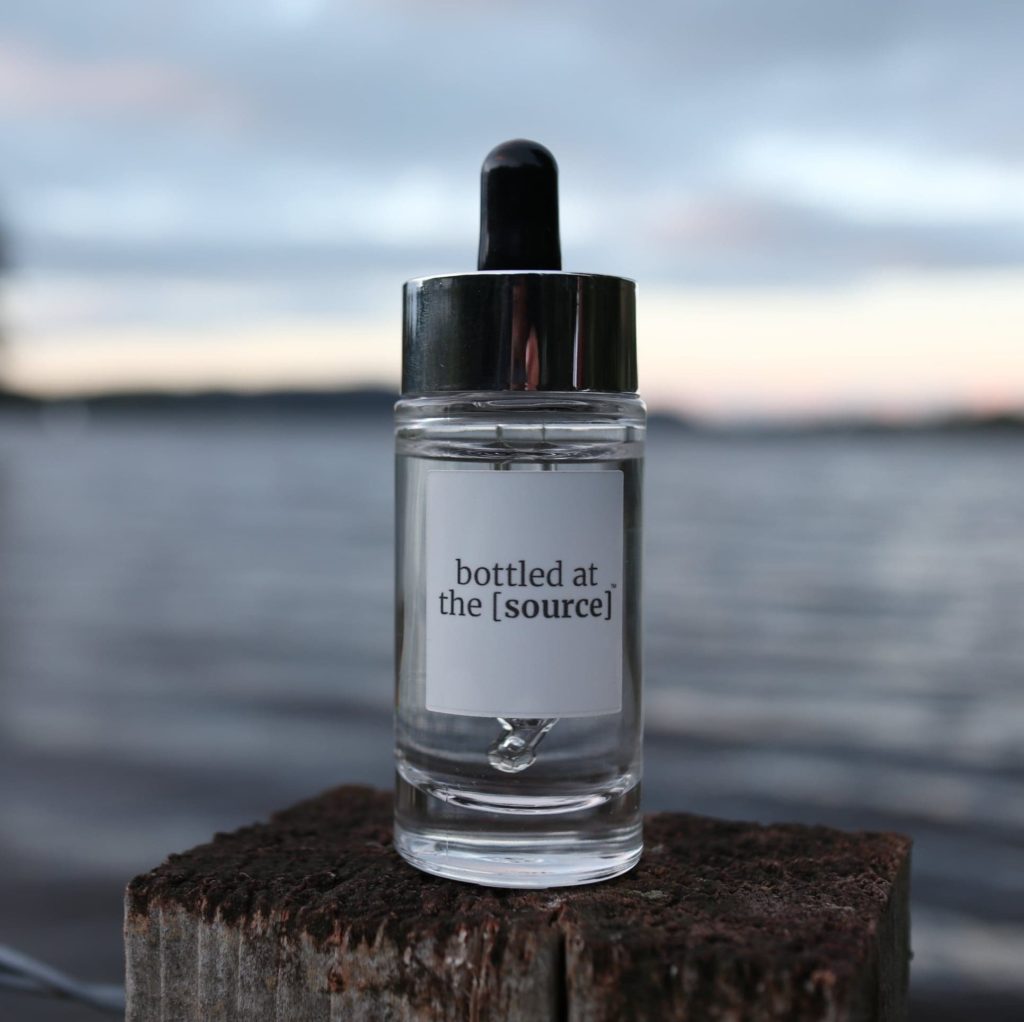Social Enterprise and Business for Change
One Young World (OYW) is a not-for-profit organisation, connecting young leaders from across the globe to identify, discuss and come up with solutions to some of the world’s most pressing issues. Each year, OYW hosts its annual Summit, inviting more than 1,800 talented young leaders from over 190 countries, who are committed to accelerating social impact.
Nikita Dhesikan, LBS MiM2019 and Founder of Bottled at the Source and Ana Djú, former Assistant at the Wheeler Institute and co-Founder of Djú&Có, were selected by London Business School to be delegates at the 2019 Summit. The Wheeler Institute sat down with Nikita and Ana to discuss their experiences at the event and learn more about what they have achieved through their respective initiatives, since returning to their communities as OYW Ambassadors.
What is the OYW Summit and why is it important?
Nikita Dhesikan: ‘The One Young World summit was genuinely life changing. Having people from every country in one room – and not just people, but young people that are creating tangible change within their communities – was something that I had never been exposed to before.’
‘Personally, I’ve always been in awe of the big ideas of global change in the realm of activism and so, having that atmosphere and place for changemakers to come and share the impact that they’ve created was incredible. It has truly re-shaped my perception of the world. It affects not just One Young World ambassadors, but anyone and everyone that’s passionate about creating change in their lives, and in their communities.’
“The summit has truly re-shaped my perception of the world”
Ana Djú: ‘I feel like I’ve never been somewhere where everyone, ultimately, had the same aims. Everyone wanted to change the world. And like you said, those people from all over the world doing projects that were so inspiring in different ways, like there was no way you could just focus on one subject and think that that’s the only thing that matters.’
‘It definitely puts some pressure on you to make change, to pass on the knowledge and inspire others. We were exposed to so much to just sit on it and do nothing, constantly getting updates on what others, now ambassadors are doing, motivates you to network and do more, which is so inspiring.’
How has the Summit shaped your way of thinking?
Ana Djú: I was exposed to so many issues that I wasn’t aware of, and issues that now I can’t live without considering. So, for instance, I’ve always known about disability, but after attending a particular breakout session on disability at the Summit, I became more aware of the issues facing accessibility every day. I now, cannot go into a building or go anywhere without thinking, if somebody was disabled, they wouldn’t be able to get in here, and it becomes obvious that we are benefiting from something that others are not based on how we were born. Not enough aDjústments are made in our society to accommodate people that live with disabilities. The breakout session affected me so much and the main take away was we, as a society, have more to learn and change to reflect the needs of all of those who live and are a part of it.
What have you been up to since the Summit? Has it inspired you?
Nikita Dhesikan: Since the conference, I have created and launched Bottled At The Source, which is a nonprofit social enterprise combining the worlds of activism, business, and natural skincare. Having attended One Young World after the completion of my Masters at London Business School, I’ve been very interested in understanding and pursuing the intersection of activism and business, which enables business for change.
As consumers, we are connected to businesses all the time, and we are constantly funneling our money into them. Through One Young World, I realised that there are so many aspects of people’s lives that can be improved with just a tiny, tiny fraction of the money that we feed into traditional businesses. So, it seems to me like there’s a huge opportunity for us, as change makers, to create these platforms to connect business and impact, but also just as consumers, to be more conscious about where our money is going.
After the summit, I did some serious exploring and thinking through “what do I want to do?” and “how can I create an impact?” And Bottled At The Source seemed like the perfect enabler for me, and other change makers around the world, to create impact in their communities through business.
Ana Djú: ‘Before the conference, I already had a social enterprise called Djú&Có, which focusses on providing guidance and support to Afro-Lusophone community in the UK. However, our target market was the older people of the community between the 35-65 age range, and not so much the youth. But after the conference we thought, how about we create a day forum similar to One Young World, where members of the community that have done really well, would sit in four different panels, to inspire young people in areas surrounding finance, employment, mental health and education.
Unfortunately, due to COVID-19 the event had to be postponed indefinitely, but we’ve been holding virtual sessions on Instagram to keep our followers engaged using the same four themes. Aside from that, I’ve also been involved in projects in Guinea-Bissau supporting the COVID-19 response team with some local organisations, doing fundraising in the diaspora, and sending money back to Guinea-Bissau so that it is distributed to the most vulnerable communities, those on the outskirts of big cities that have less access to resources.
What impact do you hope to have through your individual initiatives and beyond?
Nikita Dhesikan: The aim is for the impact to be significant and sustainable. The way we’re approaching this is to be conscious that viable change often doesn’t come from a one-off donation, or one-off offload of resources. Therefore, the overall purpose is to create a sustainable form of economic improvement. We’re focusing on skincare now, since there’s a large demand for natural products that are from the source. Unfortunately, the reality is that the farmers and source communities of a lot of these products are getting pinched and the profit margin when they are sold through large retailers is going entirely to the corporate middleman.
We’re trying to squeeze all the way down, and as a nonprofit social enterprise, the profits don’t go anywhere but back to the farmers, producers and into their vulnerable communities. I have a personal focus of contributing to educational efforts within these communities globally. My parents grew up in vulnerable village communities in India, and a lot of opportunities I’ve had, like attending London Business School, have been made possible because access to education was a priority for my parents and they worked hard to get it. I think it’s one of the best ways to create long-lasting change and break cycles of poverty
Ana Djú: In terms of the Djú&Có, I feel like the impact will continue to grow. I feel like we’ve already equipped so many people with knowledge that they didn’t have access to before. And I feel like we’ve already empowered so many people, because I am a strong believer of sustainability. It’s all about giving people the tools for them to be able to do it themselves, and not having this dependency on Djú&Có. So, if you have a project or want to follow a particular career, we’ll put you in touch with someone that’s a mentor that can help you to do that. We may not have all the answers but we can signpost you to someone who can help. So we call ourselves community leaders, because we feel like we pass on the baton to anyone else that just wants to continue to race, and do other things. And we’ve inspired other people in the community to start very similar projects.
Working at the Wheeler Institute has been amazing because we’re having a global impact. Working with entrepreneurs on the ground in developing countries to equip them with tools to lead change within their communities. Working together on lasting solutions. Again, sustainability is key, being able to provide the tools needed so they can be adapted to a local context.
How will you measure and track your impact?
Nikita Dhesikan: The goal is to divert funds that come from our products straight back to the source country in a very direct and transparent way. Moving forward, the plan is to contribute to the economy by using packaging from the area of production, to make sure there is a clear loop of additional economic influx, especially to vulnerable communities.
On a larger scale, the goal is to be a part of paving the connection between consumers and activists—every time we spend money on things, we can do that in a much more conscious way. I believe that every dollar or pound that we’re spending should and could go towards something that leaves a positive impact rather than something harmful. Therefore, I’m hoping that through the organisation itself and the broader consumer landscape, the connection between consumerism and activism becomes much stronger and plays a bigger role in all of our lives.
One Young World is one of the largest communities of impactful young leaders. This global forum is focussed on supporting young leaders working to accelerate social impact across 190+ countries. The Wheeler Institute aims to amplify the role of business in tackling some of the hardest challenges in social and economic development. Therefore, we support the School’s collaboration with One Young World by engaging with members of the One Young Community interested in pursuing studies at London Business School.
Nikita Dhesikan is Strategy Consultant at EY-Parthenon and Founder of Bottled at the Source, a non-profit social enterprise that provides a direct connection to sustainable growers, with a goal of bringing natural skincare to the world, while investing in the communities and environments that need it most. Nikita graduated from a Masters in Management at London Business School in 2019.
Ana Djú is a former Assistant at the Wheeler Institute and will shortly commence as Head of Solutions Mapping at the United Nations Development Programme in Guinea-Bissau. Ana is also co-Founder of Djú&Có, a social enterprise that seeks to fill the language gap for the Afro-Lusophone community visiting or living in the UK by providing guidance on topics related to government affiliated institutions and local councils.




